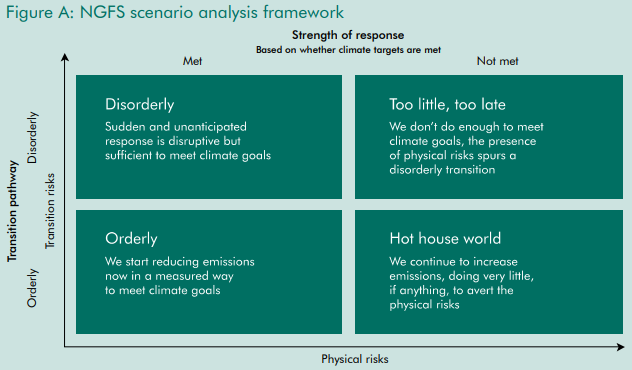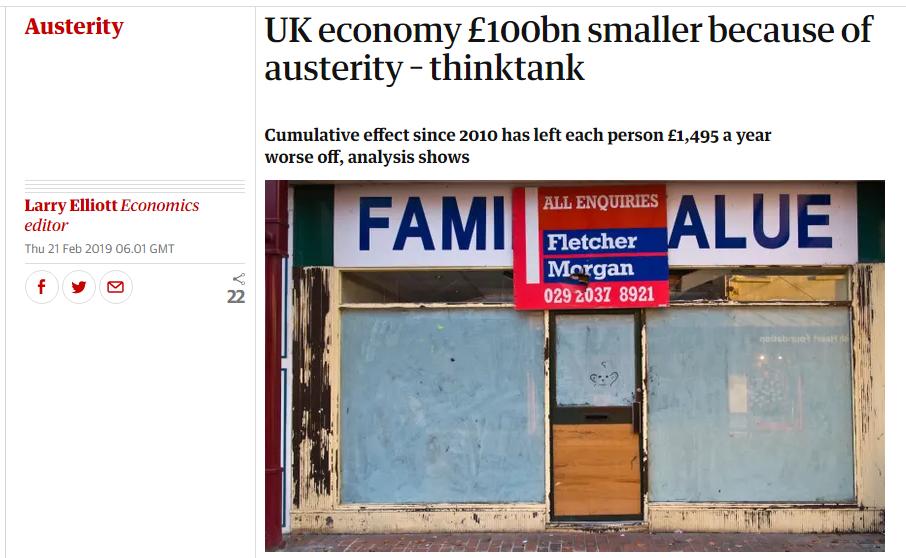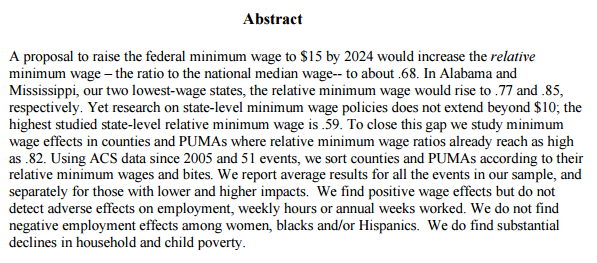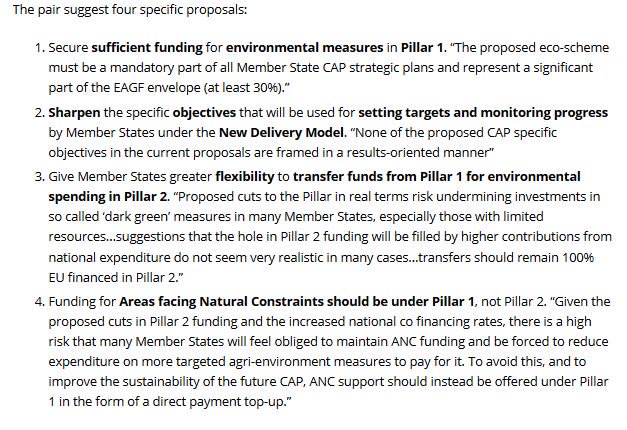Are higher minimum wages & more paid holiday key to fixing the UK's productivity puzzle?
Brand new @NEF research out today, covered by @RJPartington in @guardian and welcomed by @johnmcdonnellMP and @geofftily @The_TUC shows they are... 1/18 theguardian.com/business/2019/…
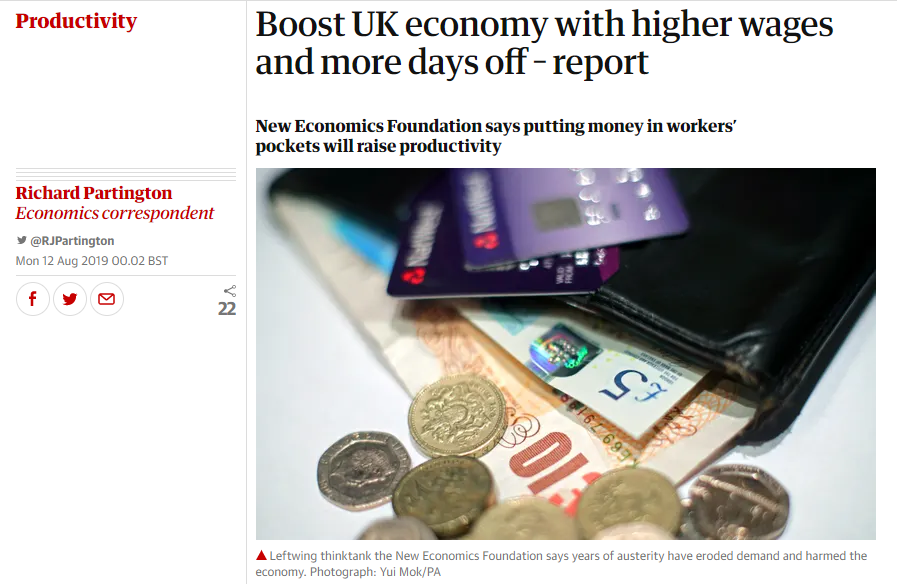
expectancy & reduced child mortality (H/T Silvana Tenreyro bankofengland.co.uk/-/media/boe/fi…)
3) While doing more (or the same) with
less is crucial to environmental sustainability 3/18
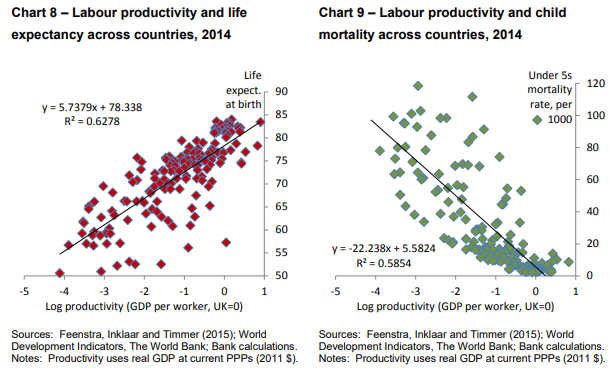
neweconomics.org/2019/08/time-f…
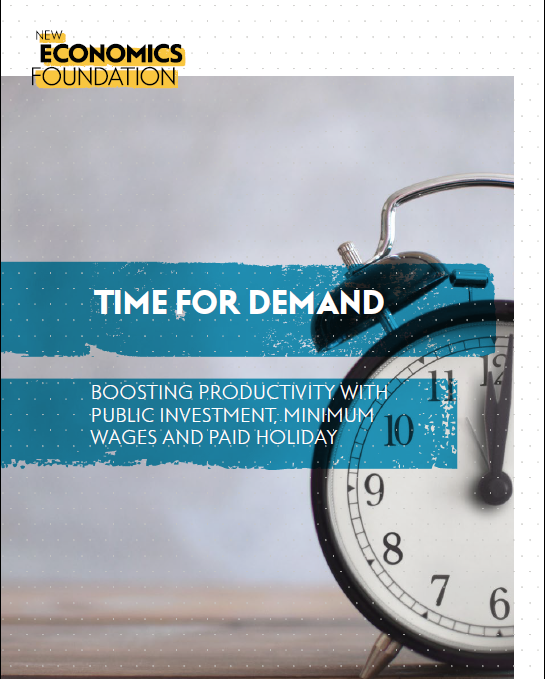
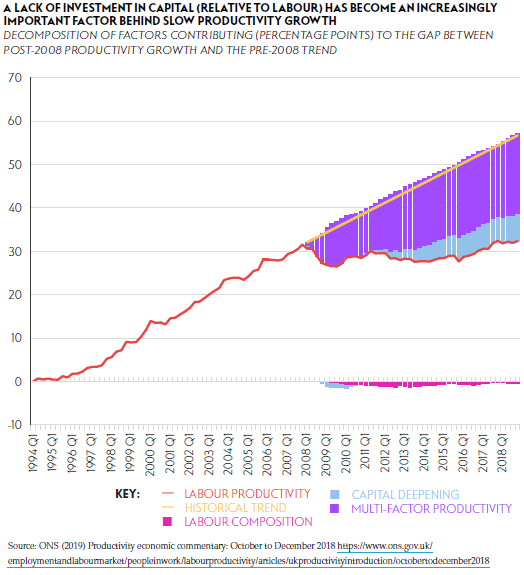
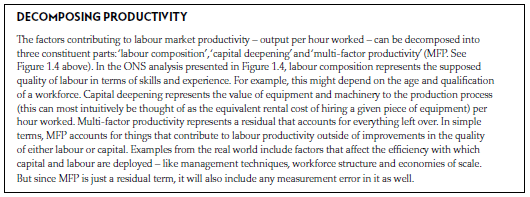
are also clear. @bankofengland estimate 2016 referendum reduced
demand by around 2% of GDP in 2018/19. NEF
analysis of @OBR_UK calculations also shows economy was up to 4.7% smaller in 2018/19 as a
result of government cuts... 13/18
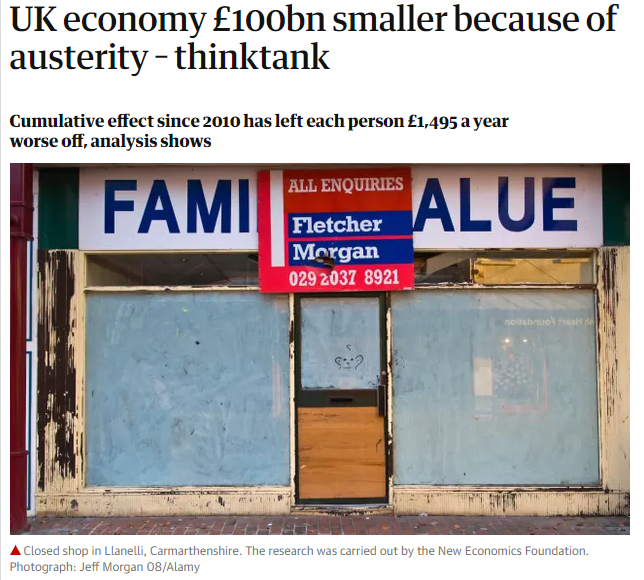
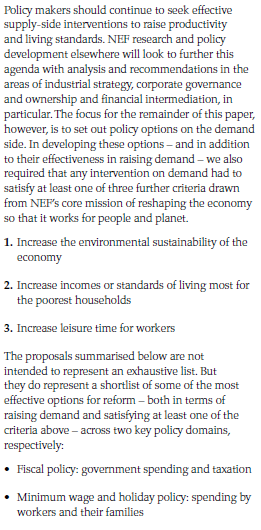
The causes include many that are deep and structural, ranging from austerity to inequality. Brexit or not, the policy response needs to be equally transformative 18/18











